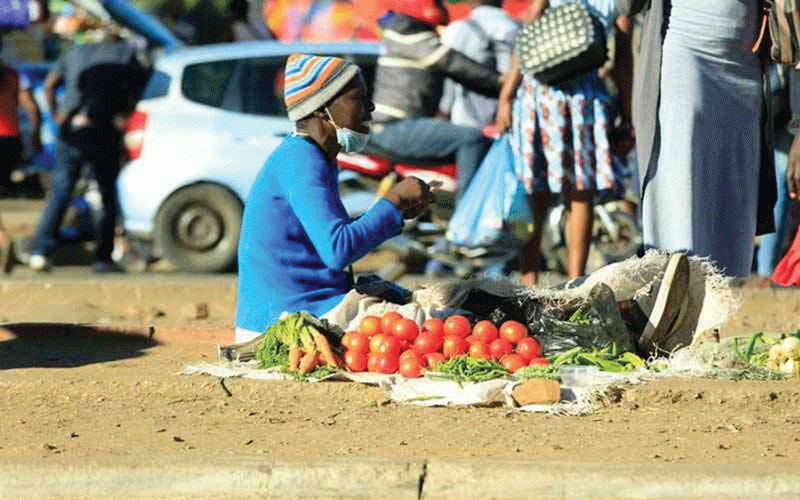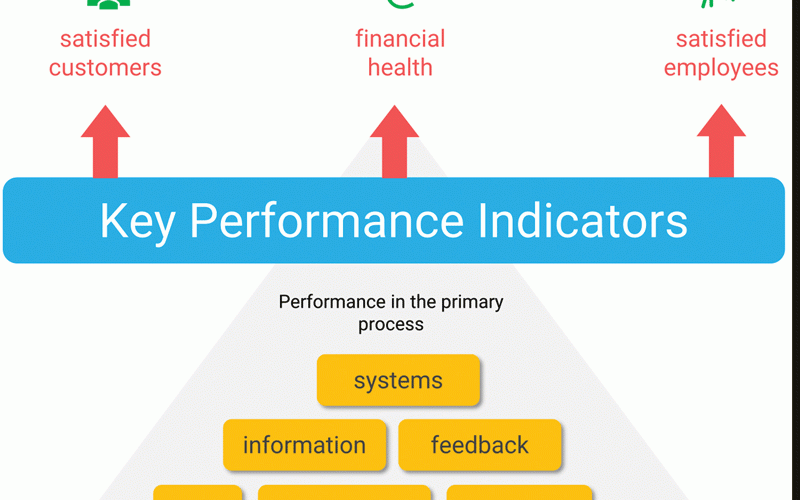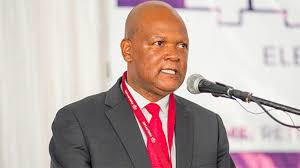
People who walk through Harare’s central business district or Bulawayo’s downtown area will observe an interesting combination of business activity and fatigue. The pavement and roadside corners host people who offer a wide range of goods, including airtime and avocados, as well as cement and second-hand clothes. The mental health consequences of living in an economy that functions mainly outside official records remain hidden within the energetic entrepreneurial spirit of the population.
The International Labour Organisation reports that more than 76% of Zimbabweans who work for a living function in the informal sector. Some experts view this situation as proof of Zimbabwean resistance to economic challenges. The unorganised hustle culture imposes significant psychological and economic challenges on the population. The nation's citizens are experiencing mental breakdowns because of their daily fight to survive.
Hustle as survival
The informal economy now protects millions of people from financial ruin. The high unemployment rate allows people to experience some level of control and financial stability. The system provides no access to formal workplace benefits, including job security, sick leave and pensions. Workers have no days off and no alternative sources of income.
Hustling is the only way to survive because without it you will starve. The psychological result is chronic stress. According to the American Psychological Association, chronic stress emerges when people experience ongoing feelings of being overwhelmed and pressured. The condition leads to depression, anxiety, insomnia and substance abuse and cardiovascular disease. The current economic structure appears to create a nationwide mental health emergency.
Economic recovery, reform
The economic reconstruction efforts should not be dismissed despite their current state. The current government has worked to stabilise the macroeconomic environment by reengaging with international lenders and making investments in infrastructure and implementing economic reforms through the Zimbabwe Investment Development Agency. The National Development Strategy 1 represents one of several initiatives that work to modernise agriculture while promoting industrialisation and formalising informal enterprises.
The government has shown growing support for micro, small and medium enterprises through funding facilities and training workshops. These initiatives represent positive developments which demonstrate the transition from survival to sustainability while showing promising beginnings.
- Mbavara eyes to resurrect Matavire’s music legacy
- Social commentary: HIV: Glimmer of hope for informal sector
- Building narratives: Govero’s narrative on personal finance
- Village Rhapsody: Mining sector must capacitate female workers
Keep Reading
Psychology of uncertainty
The main problem of unpredictability continues to persist. The world of informal traders operates in a state of constant volatility. A single police raid together with poor weather conditions or currency rate changes can easily eliminate all the gains made during the past year. There is no insurance, no buffer. The lack of control over one’s life destroys psychological well-being because control stands as a fundamental aspect.
The Locus of Control theory developed by Julian Rotter shows that people who feel powerless about their life outcomes become more prone to depression and anxiety. The absence of both policy direction consistency and institutional protection creates an atmosphere of instability which makes many people feel lost at sea.
Spiritual, personal mechanisms
People employ personal religious ceremonies together with cultural group activities which help maintain mental health stability in times of economic uncertainty. Gibson Mandishona, in his research on African resilience, correctly identifies that spiritual beliefs together with traditional practices and family bonds form the base of Zimbabwean psychological strength.
The informal economy displays gendered intricacy, but hardship creates a common bond among its people. The female vendor handles both children and money alongside produce yet the male carpenter, kombi driver and tuckshop owner face hidden struggles from unmet expectations and societal pressures and diminishing opportunities.
Survival has become the main focus of psychological performances throughout the nation. Sociologists have observed the dramatic growth of charismatic churches together with prophetic movements and religious revivalism which they term a “theology of immediacy”.
The spiritual boom operates as a separate economic system which gives people both solutions to existential questions, social assistance as well as hope and social networks. The religious surge in the country cannot be understood without understanding the economic turbulence that exists.
The church becomes more crowded at the same time that GDP decreases. Economic conditions create a clear market relationship where reduced economic stability produces rising demand for spiritual guidance and hope alongside healing services. Backyard altars and borrowed hall altars increase in number when inflation rates rise.
Coping or cracking: Psychological toll of Zim’s informal economy
A silent mathematical relationship exists between economic hopelessness and psychological disorder which leads to spiritual business operations.
Medical professionals state that people now seek help from prophets and pastors along with traditional healers before consulting clinical mental health services.
This observation stands as an important cultural phenomenon. Yet it demonstrates an inadequacy in the current mental health support systems throughout the nation. The mental wellness needs of Zimbabwean people receive no attention from policy or clinical practice but instead are met through unofficial spiritual interventions and sometimes exploitative methods. The nation needs fluid and formal economic and psychological frameworks to support these interventions for complete healing.
Government efforts in economic mental health wellness
Recent positive developments deserve acknowledgment. Public health discussions now include mental health as a priority area for government ministries. The international recognition of Zimbabwe's Friendship Bench initiative proves that community based mental health support can be delivered effectively through low cost means.
The informal market receives rising efforts to achieve regulation and official recognition. The government has built modern market stalls through the Mbare Musika refurbishment and collaborates with city councils to stop unlawful property evictions. The informal sector demonstrates growing recognition as the primary economic force in Zimbabwe through these small but significant steps.
Recommendations
The informal sector believes the following essential steps will establish the necessary conditions for Zimbabwe to regain its status as the “breadbasket of Africa”:
l The government should establish formal recognition for businesses operating informally while providing them with social security benefits and healthcare access and legal protections
l The launch of community outreach programmes should provide entrepreneurs with psychological education through stress management and emotional resilience and financial literacy training
l The government should prevent policy changes that create uncertainty because they break trust and disrupt planning processes. All business operations require clear and enduring regulatory frameworks to function properly.
l The initiative to scale up Friendship Bench programmes should occur simultaneously with the implementation of mental health services at every community health centre
l The large youth population requires safe and structured entrepreneurship pathways which should include mentorship programmes and seed capital access.
Resilience or rebellion?
Zimbabweans have survived many years of economic problems but still exist. The real issue is how much longer they can survive without help and changes in the structure. The informal economy is both a blessing and a burden. It provides livelihoods, but at what cost? We cannot build a nation with emotional inner turmoil when we fail to resolve the psychological effects of this survivalist economy.
Let the proverb, “Chisingaperi chinoshura” (Nothing lasts forever), be true for the suffering too. Zimbabwe can rise again not only as a breadbasket, but as a beacon of holistic resilience with the right blend of economic reform, psychological insight, and political will.
- Mahagwe is a mental health and wellness, hospitality entrepreneur. She is also deputy manager Health and Social Care Sector in the UK. These weekly New Horizon articles published in the Zimbabwe Independent are coordinated by Lovemore Kadenge, an independent consultant, managing consultant of Zawale Consultants (Private) Limited, past president of the Zimbabwe Economics Society (ZES) and past president of the Chartered Governance & Accountancy in Zimbabwe (CGI). — [email protected] or Mobile +263 772 382 852.










